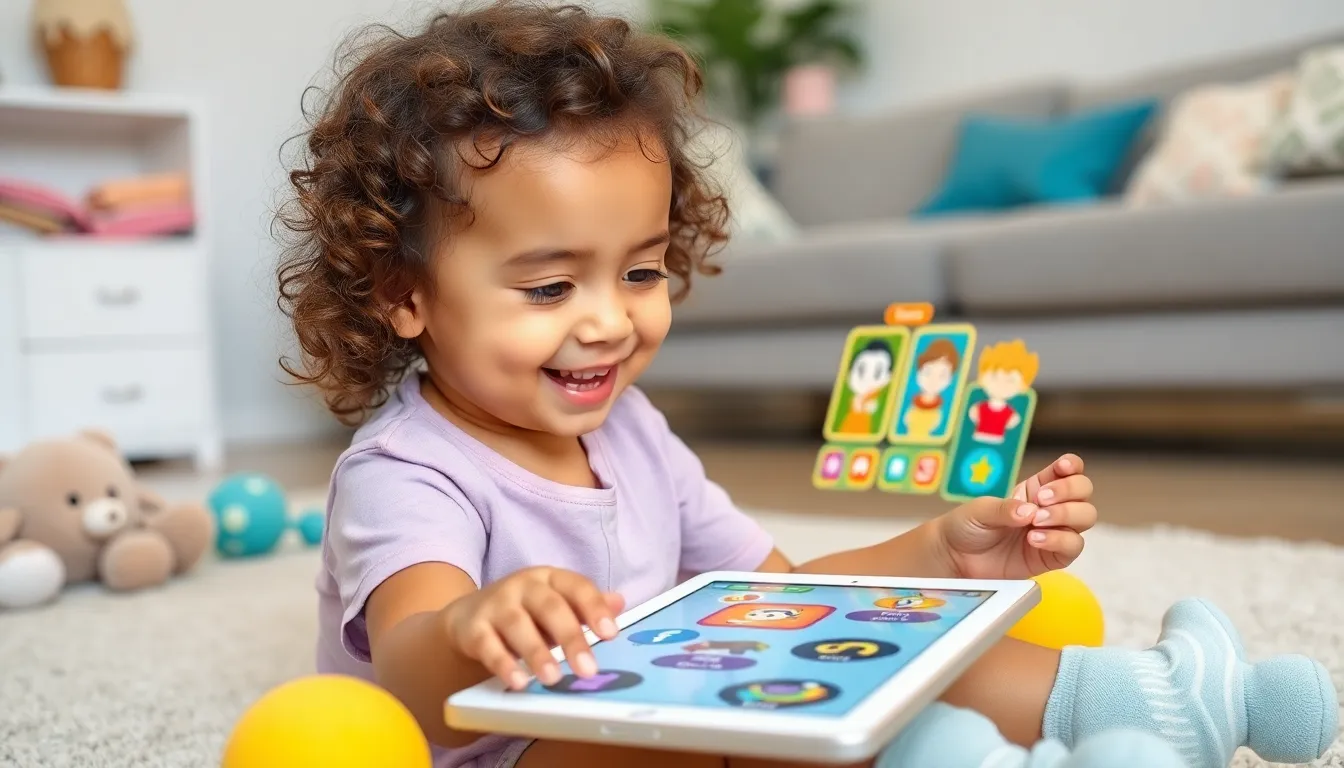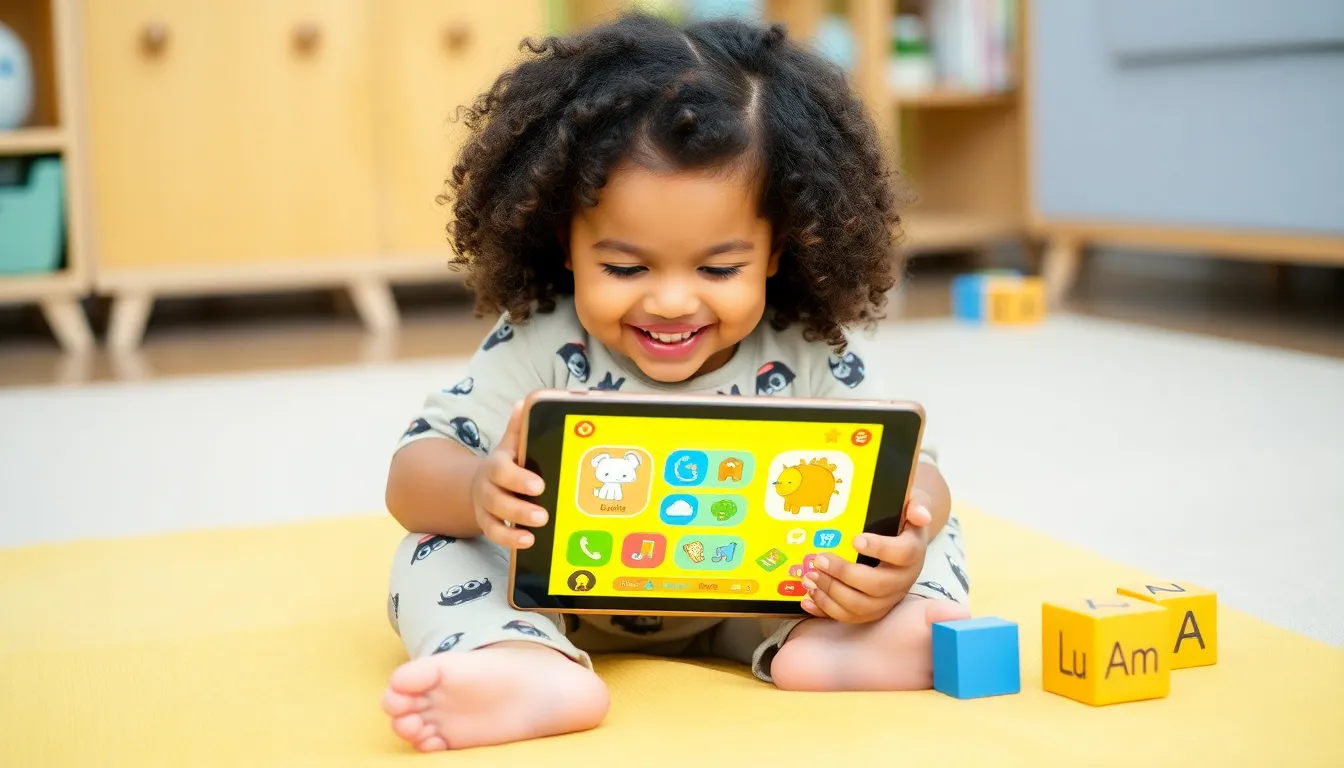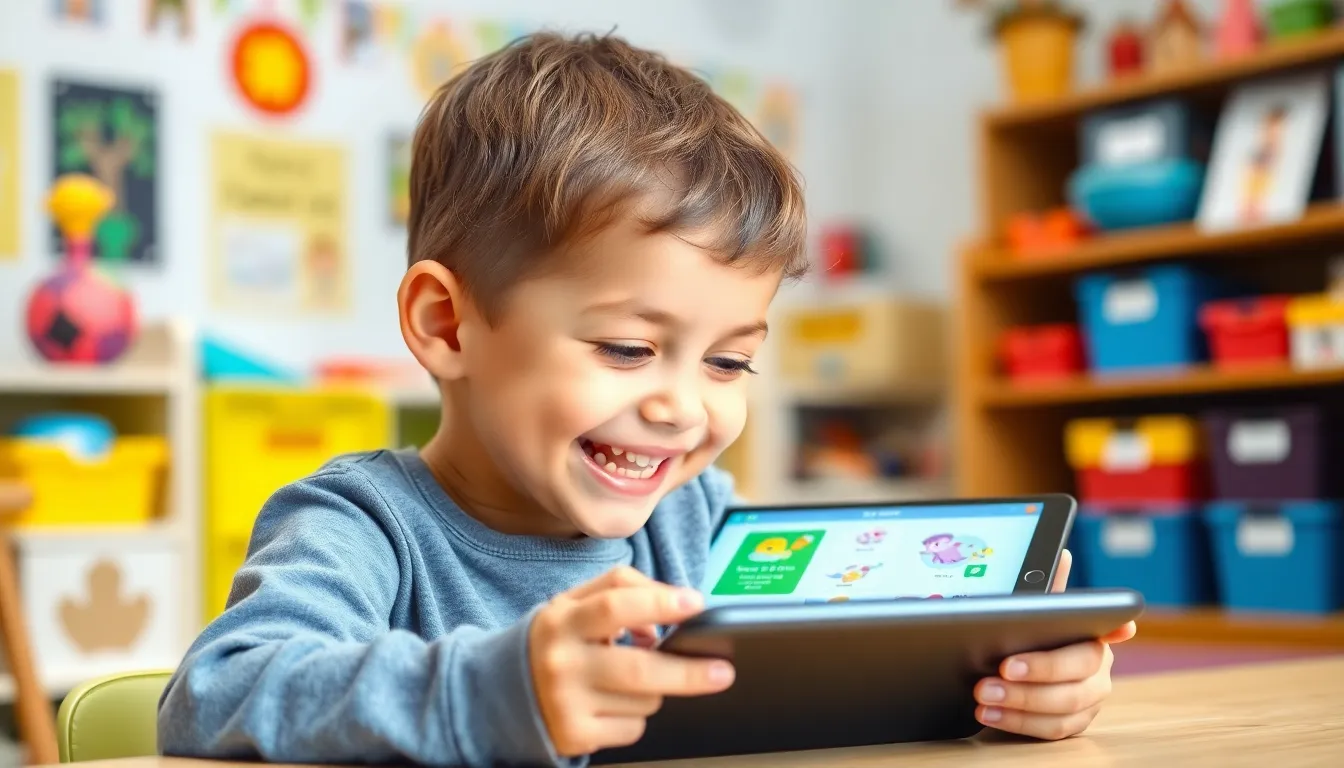In a world where toddlers can swipe before they can walk, educational apps have become the new playground. These digital gems not only keep little ones entertained but also sneak in learning when they least expect it. Imagine a toddler giggling while mastering their ABCs or counting their way to a snack—who knew education could be this fun?
Table of Contents
ToggleBenefits Of Educational Apps For Toddlers
Educational apps for toddlers provide numerous advantages that contribute to overall childhood development. These tools not only entertain but also support essential learning milestones.
Cognitive Development
Cognitive development flourishes through interactive activities that challenge toddlers’ thinking skills. Apps designed for this age group often feature engaging content focused on problem-solving and memory exercises. Learning opportunities arise as toddlers sort shapes, identify colors, and match objects. Exposure to such activities enhances their ability to concentrate and think critically. Studies show that children who regularly use educational apps demonstrate improved vocabulary and reasoning skills, setting a strong foundation for future academic success.
Motor Skills Enhancement
Motor skills enhancement occurs when toddlers interact with educational apps. Tapping, dragging, and swiping on screens promote fine motor development. Activities within these apps often encourage hand-eye coordination as toddlers engage in tracing letters or assembling puzzles. Encouragement of these skills translates to improved dexterity and control, essential for tasks like writing and self-feeding. Interactive games provide instant feedback, motivating toddlers to refine their skills while having fun. Research indicates a correlation between app use and enhanced physical coordination, benefiting overall child development.
Top Educational Apps For Toddlers


Several educational apps cater to toddlers, enhancing learning experiences through fun and interactive methods. A few standout options have gained popularity for their engaging content and effective teaching strategies.
App 1: Description and Features
Endless Alphabet introduces toddlers to new vocabulary through animated characters. Users interact with charming animals that demonstrate word meanings visually. Features include touch-responsive animations, where kids match letters with images, making learning lively. The app promotes language development by reinforcing the connection between words and their meanings using playful illustrations. Furthermore, it’s designed for independent exploration, allowing toddlers to learn at their own pace.
App 2: Description and Features
PBS Kids Games offers a variety of educational activities based on popular children’s shows. Each game focuses on different skills, such as math, reading, and problem-solving. Interactive challenges are crafted to boost critical thinking while keeping kids entertained. Gaming scenarios change frequently, which prevents monotony and maintains engagement. Lessons from the app align with early childhood education standards, ensuring toddlers develop essential skills while they play.
App 3: Description and Features
Monkey Preschool Lunchbox encourages early learning with mini-games targeting colors, shapes, letters, and numbers. Each game presents a new challenge, promoting cognitive growth through repetition and rewards. Vibrant visuals and captivating audio increase motivation among young learners. Parents appreciate that the app tracks progress, making it easier to identify strengths and areas for improvement. Overall, it creates a supportive atmosphere for building foundational knowledge.
Tips For Choosing The Right Educational Apps
Selecting the right educational apps enhances toddlers’ learning experiences. Parents should consider a few key factors.
Age Appropriateness
Age-appropriate apps engage toddlers effectively. Look for apps specifically designed for early childhood, as they align better with developmental stages. Features suitable for younger children include simple navigation, vibrant visuals, and interactive elements that hold their attention. Apps like “Endless Alphabet” promote language skills while being enjoyable for toddlers. Always check app ratings and reviews to ensure content matches your child’s age. Prioritizing age appropriateness helps foster a positive learning environment.
Screen Time Guidelines
Establishing screen time guidelines is essential for healthy digital interactions. The American Academy of Pediatrics recommends limiting screen time to 1 hour per day for children ages 2 to 5. Balance app use with other activities, such as reading and playtime, to support well-rounded development. Encourage participation; share experiences by exploring apps together. Select educational apps that encourage active engagement rather than passive consumption. Following these guidelines promotes responsible use of technology while maximizing educational benefits.
Parental Involvement In App Usage
Parental engagement is crucial in maximizing the benefits of educational apps for toddlers. Active participation can significantly enhance children’s learning experiences.
Encouraging Interactive Learning
Parents should partake in app activities alongside their toddlers. This involvement fosters a collaborative learning environment. By asking questions related to the app’s content, caregivers can stimulate critical thinking and further learning. Parents can also guide toddlers through challenges and celebrate achievements, reinforcing positive behavior. Engaging toddlers in discussions about concepts learned from the apps bridges the gap between digital play and real-life application. Consistent interaction creates a more enriching experience and deepens comprehension of essential skills.
Setting Boundaries
Establishing clear screen time limits is essential for healthy app usage. Experts recommend allowing no more than 1 hour of screen time per day for children aged 2 to 5. Setting boundaries helps balance digital engagement with other vital activities, such as outdoor play and reading. Parents might create a daily schedule that incorporates app usage, ensuring toddlers don’t become overly reliant on screens. Communicating the importance of moderation reinforces the educational value of these apps while promoting overall development. Thoughtful limits contribute to a well-rounded childhood experience.








